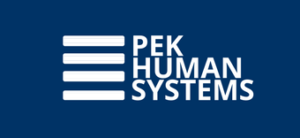Recruitment Strategies
“Manageable recruiting costs, without compromising outcomes”
The effectiveness of talent sourcing and acquisition practices is a function of a consultancy’s experience, extensiveness of networks and equity proposition. As a Recruitment Consultant in Melbourne, the following cases demonstrate our range of expertise.
Case 1: a “start-up” advanced manufacturing technology business recruited multiple Team Leaders with transferable leadership behaviours assessed by way of group exercises, as little comparable experience in this sector was available in the market-place.
Case 2: regional (Vic.) recruitment strategies with industrial and utilities clients require creative sourcing strategies: e.g. identifying potential candidates previously/currently located regionally and contacting those referred by organisations well-connected with the client.
Case 3: a client’s insistence on an executive search within competitor and like-industry sectors eventually was resolved via advertising: i.e. it became apparent that candidates with the required leadership either weren’t interested or didn’t exist amongst those organizations in the initially nominated sectors.
Sourcing and acquiring the best available talent is increasingly dependent on a combination of overt e.g. advertised recruitment and covert i.e. executive search techniques. The more a client’s priority is with leadership competencies rather than specific industry experience, the more a parallel advertising and search strategy is applicable. Promoting opportunity to both active and passive job-seekers ensures the entire market-place is canvassed (delete activated) and the best available candidate is recruited. Our approach is to involve clients in the recruitment strategy and process: we don’t assume to “know it all.” Fees are related to time incurred: i.e. relate to expertise and service delivered (delete dependent) rather than arbitrarily linked to the role’s package remuneration.
Linked to recruitment is talent management, with its focus on development of competencies and behaviours, benefitting overall workplace planning strategies e.g. succession planning. Motivated staff are more likely to contribute effectively, adapt as required and remain loyal. Furthermore, recruitment costs are manageable and budgeted L&D is economical.
PEK Human Systems
